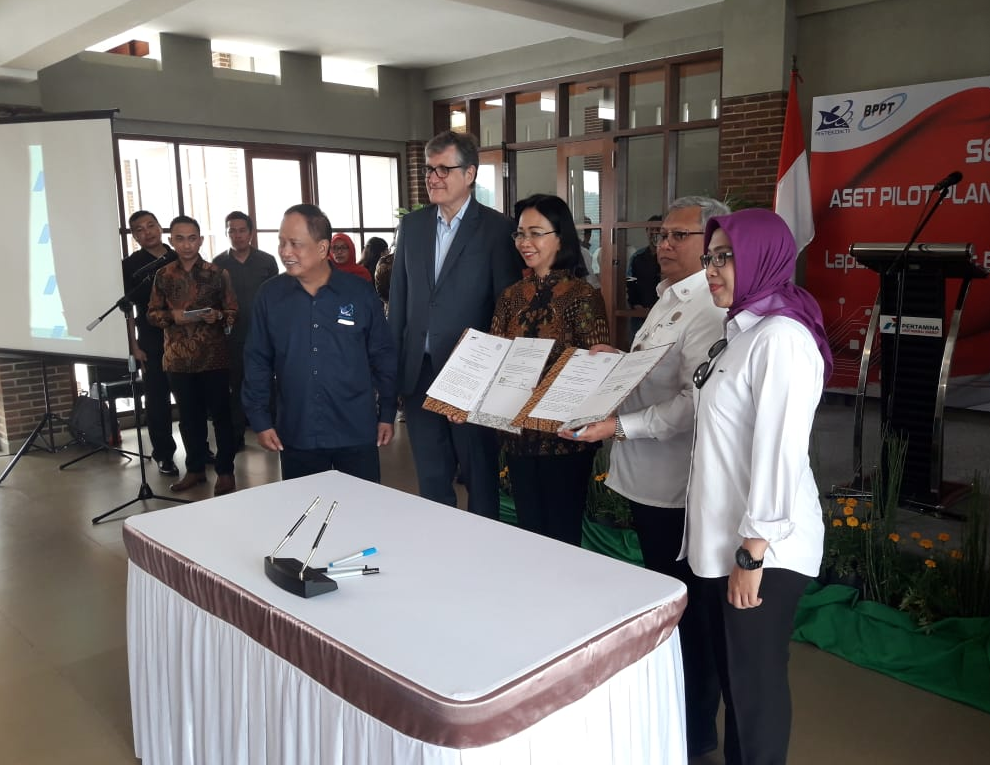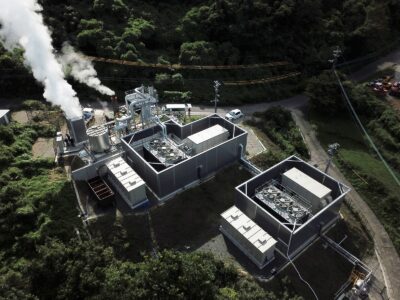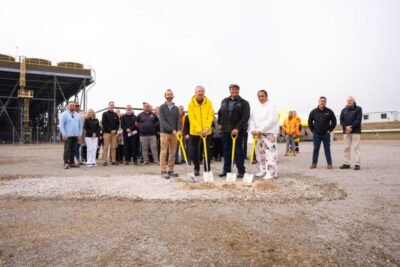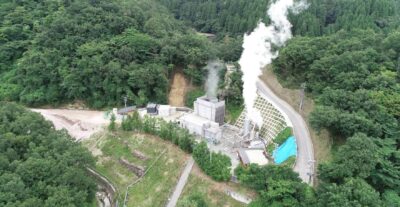Binary pilot geothermal plant in Lahendong, Indonesia officially handed over
In a ceremony today, the German Ambassador to Indonesia, officially handed over a binary geothermal pilot plant to the Indonesian partners of BPPT and RISTEKDIKTI in Lahendong, Indonesia.
In October 2017, the first low-temperature geothermal demonstration power plant was successfully commissioned in Lahendong/ Tomohon, North Sulawesi.
The construction and operation of the geothermal power plant is a joint study carried out between the Agency for the Assessment and Application of Technology (BPPT), the Ministry of Research, Technology and Higher Education with the German Federal Government through the GeoForschungsZentrum (GFZ) German Research Center for Geosciences supported by PGE.
“We hope that this plant can operate properly, reliably, and continue to provide benefits for operations in the Lahendong Field. In addition, it is hoped that this plant can increase the knowledge, experience and capabilities of Indonesia’s human resources,” said PGE President Director Ali Mundakir in a statement.
In a ceremony today, the 500 kW plant was officially handed over to the Indonesian partners.
“I am proud to hand over Lahendong Binary Geothermal Power Plant to the Ministry of Research, Technology and Higher Education (RISTEKDIKTI). German-Indonesian Research Cooperation at its best. Binary geothermal technology can be replicated in many parts of Indonesia, so Dr. Peter Schoof, German Ambassador to Indonesia.
This was conveyed during the handover of Lahendong Binary Cycle PLTP from GFZ Germany to BPPT in the Lahendong Geothermal Field, Tomohon. The handover event of a 500 kW Geothermal Power Plant (PLTP) from the GFZ German Research Center for Geosciences to BPPT was attended by various parties. One of them is Minister of Research, Technology and Higher Education (Menristekdikti) Mohamad Nasir who was accompanied by Acting Head of the Agency for the Assessment and Application of Technology (BPPT) and his staff.
In his speech, the Menristekdikti welcomed the support of the German Government in the development of Binary Cycle PLTP technology. He also hoped that the handover could be the first step in a major effort to utilize renewable energy and increase human resources in the field of EBT technology, especially geothermal.
On the same occasion, Deputy of Energy and Material Information Technology (TIEM) BPPT, Eniya L. Dewi said that the Lahendong 500 MW PLTP system is a smale scale binary cycle plant system.
“This PLTP utilizes wet geothermal steam that cannot be used by conventional PLTP. In addition, this PLTP can also be used to utilize the remaining hot water from conventional PLTP so as to increase total efficiency and increase generation capacity. This PLTP can be used as a model for utilizing geothermal wells with “Wet steam is characteristic of most geothermal sources in Indonesia, especially Sumatra and Sulawesi,” said Eniya.
PGE’s contribution to the total geothermal power generation capacity of Indonesia is about 32% from 5 areas with a total installed capacity of 617 MW.
The capacity consists of the Lahendong area with an installed capacity of 120 MW and contributes around 60% in the North Sulawesi transmission network system, Kamojang with an installed capacity of 235 MW, Ulubelu with an installed capacity of 220 MW, Karaha with an installed capacity of 30 MW, and Sibayak with an installed capacity of 12 MW.
While in 2019, PGE is targeting to be able to add an installed capacity of 55 MW from the Lumut Balai geothermal field, South Sumatra, targeting the total installed capacity of PGE to be 672 MW.
To support the National Energy Policy, PGE also continues to develop geothermal energy in all regions of Indonesia. Among these are developments at the Hululais Project (including Hululais Extention, Bukit Daun) in Bengkulu, Lumut Balai Project in South Sumatra, Sungai Penuh Project in Jambi, Seulawah in Aceh, and Lawu in Central Java.


















